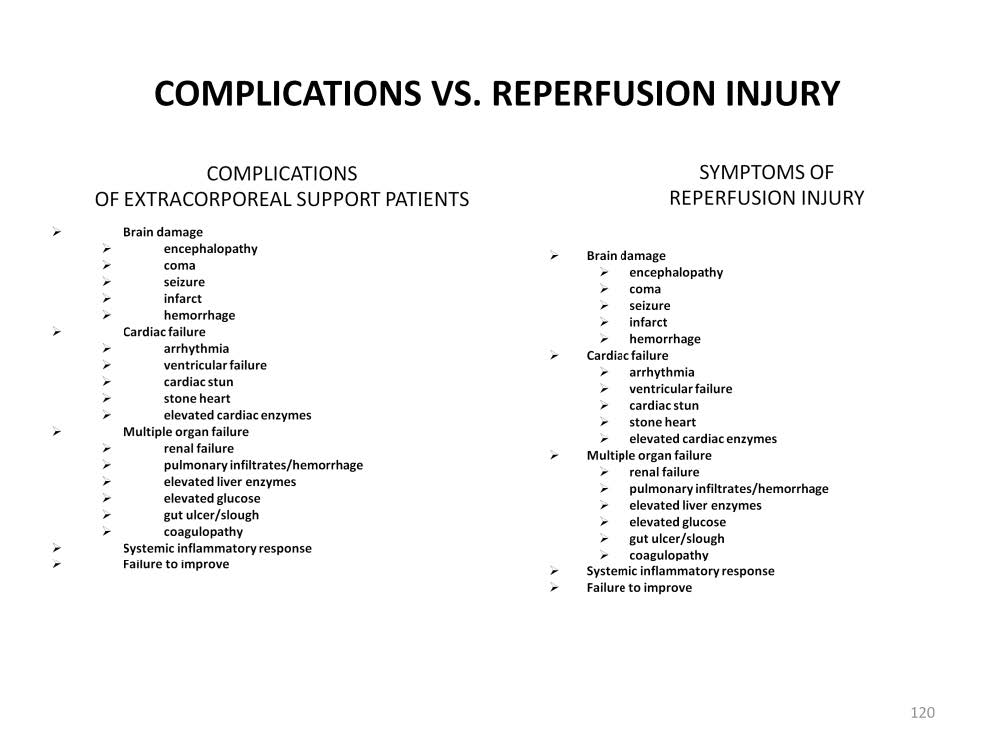
Patients undergoing mechanical cardiopulmonary support do not normally expire from their primary disease. In respiratory patients, for example, infants on ECMO for meconium aspiration syndrome or primary pulmonary hypertension do not usually die from these conditions. Rather they suffer a lethal complication such as a cerebral hemorrhage or multiple organ failure. Adults on mechanical support for acute (adult) respiratory distress syndrome (ARDS) or pneumonia frequently expire from a stroke (brain infarction or hemorrahge) or simply failure to improve. Cardiac patients frequently go into multiple organ failure while waiting for the heart to recover or develop systemic inflammatory response with all its accompanying pathologies.
There is general acceptance that early intervention with mechanical support relates to improved survival. For example, surviving neonates with respiratory disease are placed on ECMO an average of 2 days after birth while non-survivors are placed on ECMO an average of 4 days after birth. However no one has really determined when it is futile to initiate mechanical support. This is usually determined retrospectively; i.e. if a fatal complication occurs the patient was probably put on mechanical support “too late”(1,2).
The real cause of these complications is the implementation of mechanical support itself (which is intended to save the patient) during the time when the patient is most susceptible to reperfusion injury. The list of extracorporeal support complications are the same types of things that would be expected from reperfusion injury.

Perfusion Theory is an educational platform for the Oxygen Pressure Field Theory (OPFT). August Krogh’s theoretical concept of the oxygen pressure field is explained and then applied to clinical applications in perfusion practice.